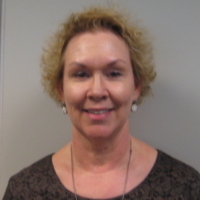
Medgeeks
EKG Mastery 2023
Our step-by-step program that shows you how to master the EKG for clinical practice
Video & Audio
16 hours of detailed EKG training accessible on our website or mobile app.
Written Notes
Written notes, rapid summary guides, and practice EKGs for each lesson.
100% Guarantee
Don’t absolutely love it? Let us know within 30 days and we’ll refund every penny.
Lifetime Access
Get access for life, including free access to any and all updates made.
The EKG is cheap, quick, and non-invasive, making it one of the most commonly ordered tests.
This means every clinician has to know how to interpret the EKG. But, the problem with most textbooks is that they don’t truly provide much guidance, and it’s hard to decipher what is important vs what isn’t. Most books I found to be either overly simplistic or overly complicated.
Believe it or not, many clinicians often ask why they should even bother learning to read the EKG. You might also be thinking, “Well, most EKG machines actually give their own interpretations.”
And of course, you could just rely on those interpretations. But, when we asked Dr. Judy Finney (one of our lead educators), she said that after having read EKGs for decades in various clinics, hospitals, and insurance medicine, she found that the quality of those machine-made interpretations can be extremely variable.
They don’t all have accurate embedded interpretations.
A retrospective study published in 2022 titled, Analysis of the accuracy of automatic electrocardiogram interpretation in ST-segment elevation myocardial infarction, demonstrated that 26.5% of patients with STEMI were inaccurately interpreted as non-AMI by the auto-interpretation of the ECG machine.
Therefore, it really helps for you to be able to read the EKG without having to rely on the machine. The other thing to keep in mind is there are times where the findings are subtle, and so the machine will miss certain abnormalities.
That’s why we created EKG Mastery.
This the most comprehensive EKG review on the market; created for any clinician (physician, nurse practitioner, and/or physician assistant) needing to reliably read and understand the EKG. The training is led by Dr. Judy Finney, who is board certified in internal medicine, cardiovascular diseases, and interventional cardiology.
Our program is packed with real world experience by someone who’s seen thousands of EKGs in their career.
The goal is to have you feeling confident reading EKGs so that you can better provide for the patient in front of you.
The Curriculum
Get your questions answered.
Although it’s a self-paced program, our instructors make themselves available Monday – Friday to answer any questions you may have.
Free updates.
Every year we make updates to the curriculum to ensure we stay current. You’ll get immediate access to every update (no additional charge).
- Electrical system of the heart
- Galvanometer principles
- Cardiac myocytes
- Single cell to whole heart
- Action potential
- The cardiac cycle and their appearance on EKG
- Why you should know how to interpret the EKG
- Overview of the 10-step plan to interpret every EKG Part 1
- Overview of the 10-step plan to interpret every EKG Part 2
- Overview of the 10-step plan to interpret every EKG Part 3
- Overview of the 10-step plan to interpret every EKG Part 4
- Knowing the placement of each lead
- Understanding positive and negative deflections
- An overview explaining why specific electrical activity is seen
- Why you shouldn’t rely on the EKG machine for interpretation
- How to approach the EKG
- Is the EKG interpretable?
- Do we have artifact?
- Are the EKG standards met?
- Understanding the P wave, QRS segment, T wave, & U wave
- Interpreting the rate (3 methods) and rhythm
- Understanding intervals: PR, QRS, and QT
- Sinus arrhythmia
- SVT (ectopic atrial tachycardia and paroxysmal atrial tachycardia)
- Nodal and junctional arrhythmias
- Atrial flutter
- Atrial fibrillation
- Escape rhythms
- Idioventricular rhythms
- Accelerated idioventricular rhythms
- Ventricular tachycardia
- Ventricular fibrillation
- Things that look like ventricular rhythms but aren’t (IVCD, RBBB, LBBB, WPW, Paced Ventricular Rhythm)
- Sick sinus syndrome
- 1st degree AV Block
- 2nd degree AV Block
- 3rd degree AV Block
- How to quickly calculate the axis
- Atrial hypertrophy and enlargement
- Right ventricular hypertrophy
- Left ventricular hypertrophy
- Right bundle branch block
- Left bundle branch block
- Ashermann’s phenomenon
- Brugada syndrome
- Fasicular block
- Geography & anatomy of the coronary arteries
- Timing of the EKG
- T wave inversion
- ST depression
- ST elevation
- Q waves
- Pericarditis vs ST elevation MI
- Secondary repolarization (don’t confuse this with ischemic ST depression)
- Normal q wave vs. pathological q wave
- Things that can mimic Infarcts on EKG
- Electrolyte abnormalities (potassium and calcium)
- Hypothermia
- Digoxin
- Drug effects on the QT interval
- Athlete’s heart (normal vs abnormal findings)
- Pacemaker and defibrillator
- Practice EKG case studies
- How to quickly read the EKG using everything we’ve learned
Made For The Clinician (PA, NP, MD, and DO)
EKG Mastery 2023
Your Instructor

Dr. Judy Finney
Judy Finney, M.D. graduated from the Michigan State University School of Medicine in the top 5% of her class.
Dr. Finney did her residency in internal medicine with Michigan State University Clinical Center and did a fellowship in cardiovascular disease at Ingham Regional Medical Center.
She also taught at Midwestern University School of Medicine. For seven years she was a clinical professor taking on one student at a time during their 3rd year clinical cardiology rotation to really help them excel.
During that time, she also taught EKGs, heart sounds, and murmurs to everyone in their cardiology rotation.
Dr. Finney was also assistant professor for the school of medicine. She re-wrote all objectives for the internal medicine rotation and created a database of questions they could use for testing during the internal medicine rotation.
Lastly, she ran case-based small group sessions for the 3rd and 4th year students, taught a 10-week EKG elective course, and did 1:1 tutoring to help low-performing students pass.
In other words, she knows how take a student from novice to master.
Customer Reviews
Josh N. MPAS, PA-C
Excellent beginner to advanced review for interpreting ECGs. I worked in cardiology as a new grad and wish I had this resource at the time being that I was essentially thrown into the deep end of the pool. I like to think of myself as a quick learner but this would have been an excellent refresher.
Videos are of reasonable length for the material they cover. The course begins by reviewing the vector basis for formulating an ECG and the reasoning behind the waveforms in each lead for the entire PQRST complex.
The vector portion is also fast enough that you won’t get bored just to get up to speed then the course is led by a seasoned cardiologist who will take you through the major ‘must know’ ECGs.
This is one of the best online reviews I’ve seen. I would definitely recommend this course”
Pooja S. PA-S
I absolutely love the EKG mastery course. You get a little bit of EKG training in PA school and they tell you to read all the different EKG books, but it’s still so difficult to grasp interpreting EKG’s. Then, in clinical year, it’s usually too busy for a preceptor to sit down and walk you through an EKG, fully.
However, interpreting EKG’s is something you do in so many settings from outpatient primary care or urgent care to inpatient. It’s an integral skill.
The EKG mastery course really walks you through, step by step, in digestible pieces. It lays the foundation and then builds onto the foundation. I not only learned how to interpret EKG’s, but I’m so much faster at reading them, and I’m not falling behind anymore in clinic.
Sheila H. PA-C, MPH
I wasn’t sure if I would get my money’s worth from this EKG Mastery course or if it would cover things at the right level for me.
However, my expectations have been greatly surpassed!
Not only have I solidified things that I already knew at a surface level but did not understand well enough, but I’ve also learned multiple new things!
Completing this course has allowed me to become more confident in reading EKGs as well as heart monitors and stress tests.
I highly recommend this course to all PAs and to PA students interested in cardiology!